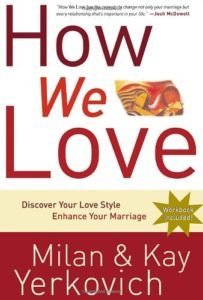Strengthening the Marriage Bond: 4 Topics to Explore with Your Spouse.
One of our deepest needs as humans is for connection. God created us in his image and in his likeness. Among the characteristics of “God likeness” is a desire for relationship. The triune God himself is in relationship. One God, in three persons, enjoying and taking pleasure in communion with one another. God likewise calls us into relationship and deep communion with himself. God uses metaphors throughout Scripture to help us understand our need for connection with him and others. In Psalm 1 we see that flourishing as believers is analogous to “a tree planted by the rivers of water.” For the church, Paul uses the analogy of a body – 1 Corinthians 12:12 “For as the body is one, and hath many members, and all the members of that one body, being many, are one body: so also is Christ.” And the well-known passage in John 15 reminds us that apart from Christ we “can do nothing.” It is out of this connection with, attachment to and abidance in, that we find security, rest, and life.
Similarly, Scripture emphasizes marriage to be a metaphor of our relationship with Christ (2 Corinthians 11:2; Ephesians 5:22-33). Deepening our connection and bond with our spouse flows out of an abiding communion with each other. When securely connected to our spouse we experience more peace, rest, and resilience to engage the journeys of life. On the flip side, a loss of connection is painful and distressing. Threats of losing connection can lead to fear, anxiety, and grief. Several places in Psalms illustrate the pain and distress of not experiencing a response or connection with God. Consider Psalm 22:1-2 “My God, my God, why hast thou forsaken me? why art thou so far from helping me, and from the words of my roaring? O my God, I cry in the day time, but thou hearest not; and in the night season, and am not silent.” In Mark 15:34 we read of Jesus crying out this same message to his Father. Likewise, couples experience distress when not feeling connected or attached to their spouse. Maintaining this secure connection and attachment to our spouse can be challenging at times. Below are four factors to consider when exploring a thriving and flourishing marriage connection: past influences, accessibility, responsiveness & engagement.
What influence does your past have on you?
One of the first considerations in deepening the connection with our spouse is growing in self-awareness. How have we been shaped by our past and how does this influence the way we behave in our marriage? The reality is each of us have been shaped from past experiences in life. Past experiences don’t determine who we are or who we will become, but they do have an influence over how we engage relationships and interact in the present. Our past experiences are particularly accurate when we think about the early years of our life. Learning how to interact in this world was modeled partially by how our parents interacted with us. Early years are formative in understanding what love is, who God is, how we treat others, etc. Our early years can teach us things like: Is it okay to ask for comfort? Does asking for comfort when in distress actually lead to comfort? Are you better off not relying on others? Are others dependable and trustworthy? How do you navigate through negative emotions?
This idea that our past experiences influence present interactions is seen in Scripture. We see it in the life of Jacob as he is returning to meet Esau. We see it in the life of Joseph’s brothers after Jacob dies (Genesis 50:15). We see it in the life of Peter as well as Jesus’s desire to redeem that past denial through his three subsequent questions of Peter’s devotion and love. Perhaps the question we should ask is how has my past shaped my present reality, behaviors, and interactions with my spouse? What is my default response when I am in distress? Do I reach out and ask my spouse for comfort? Do I withdraw and go silent? Where did I learn this? What past experiences influence my current interactions with my spouse?
How accessible are you?
Romans 5:1 “Therefore being justified by faith, we have peace with God through our Lord Jesus Christ: By whom also we have access by faith into this grace wherein we stand, and rejoice in hope of the glory of God.” Christ is the means by which we access the Father and by which we receive grace and power. In the gospel of John we are reminded Jesus is the “door” (John 10:9). Just as God is accessible to us through Christ, an important component of building a secure connection and deep communion with our spouse is the idea we are accessible to our spouse. This means there is an openness to your spouse even when you may have stress, doubts, and feelings of insecurity. It means inviting our spouse to help make sense of experiences and emotions, so experiences and emotions are not overwhelming. Consider how you may respond to these questions using a continuum of always—sometimes–rarely:
- I can share my deepest fears and feelings with my spouse.
- It is evident that, aside from God, my spouse shows me that I come first with him/her.
- I can get my spouse’s attention easily and consistently.
- I do not feel lonely or pushed out in my marriage relationship.
How responsive are you?
Psalms 34:4 “I sought the Lord, and he heard me, and delivered me from all my fears.” Our great God is not just accessible he is also responsive when we cry out to him and his responsiveness leads to comfort, relief, and security. A secure connection in marriage is one where a spouse can rely on the responsiveness of his/her spouse when reached for. In John 15 Jesus speaks of “abiding in” or remaining in him. Being “tuned into” Jesus should thus translate to being “tuned into” our spouse. This means showing our spouse how we are deeply impacted or moved by their sharing of fears, insecurities, and vulnerabilities. Jesus exhibited a sensitive responsiveness to the affliction of others that touched them emotionally and calmed their fears. God calls us to this beautiful picture in marriage and wants us to prioritize our spouse’s emotional signals and respond in comfort and care. Consider how you may respond to these questions using a continuum of always—sometimes–rarely:
- When needed, I can get reassurance about how important I am to my spouse.
- If I need comfort and connection, my spouse will be there for me.
- I find it helpful to lean on my spouse when I am anxious, stressed, or struggling with doubt.
- Even when we disagree, I know I am important to my spouse, and we will find a way to come together.
How engaged are you?
The story of the woman with an issue of blood (Luke 8:43-48) is a beautiful picture of Christ’s engagement with those who reach for Him – Luke 8:47-48 “And when the woman saw that she was not hid, she came trembling, and falling down before him, she declared unto him before all the people for what cause she had touched him, and how she was healed immediately. And he said unto her, Daughter, be of good comfort: thy faith hath made thee whole; go in peace.” It took tremendous courage and faith for this woman to reach and touch Jesus, since she was considered unclean. Jesus, moved by her vulnerability and act of trust, stops and engages with this woman. Christ responds to her need for loving connection with tenderness. Our marriage relationship is to reflect this intimate engagement and allow our spouse to know we value them and desire to keep them close. It means being emotionally present with them by being intentional about connecting and listening, while exhibiting physical touch and genuine forgiveness. Consider how you may respond to these questions using a continuum of always—sometimes–rarely:
- I feel safe enough to take emotional risks with my spouse.
- I feel very comfortable with being close to my spouse.
- I can confide in and trust my spouse with almost anything.
- I know my spouse cares about my joys, fears, hurts, and dreams.
Conclusion
God has given us the greatest gift he can give us – himself. Both in the Old and New Testament God is the one who hears the cries of His people and responds compassionately. Jesus shows us over and over what it means to be accessible, responsive, and engaged with those around him. May God grant us grace and humility as we seek to follow this model in our marriage relationship and deepen our connection with our spouse.
To view the complete PDF, click here.
For Further Information:
Listen to the Attachment Styles in Marriage presentation at Marriage Conference Cultivating Connections.
 How We Love: Discover Your Love Style, Enhance Your Marriage
How We Love: Discover Your Love Style, Enhance Your Marriage ![]()
Authors: Milan & Kay Yerkovich
This book seeks to show how early life experiences create an underlying blueprint that shapes your beliefs, behavior, and expectations in your marriage. The authors identify four styles or blueprints and provide principles to help you break free of negative patterns and enhance intimacy.





Comments
Leave a Comment